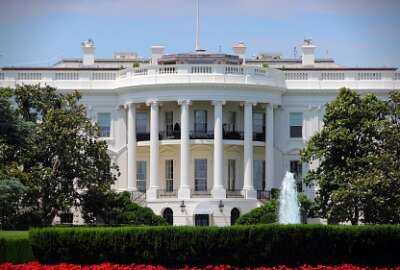
Agencies encouraged to step up their game for 2016 transition
Agency preparations for the 2016 presidential transition are well underway. The Office of Government Ethics is adding more training programs to help its employees...
With nearly 11 months until Inauguration Day, a governmentwide effort to prepare for the upcoming presidential transition is well underway.
The Office of Government Ethics is adding training programs for its employees and agency ethics officers to help them vet and process applications for new political appointees. Congress recently passed legislation that aims to improve the transition process.
And transition leaders from at least 40 different agencies are meeting this week to discuss their preparations for November, said Max Stier, president of the Partnership for Public Service.
But agencies and candidates need to be more ambitious as they prepare for Jan. 20, 2017, current and former administration leaders say.
“It’s a new world,” Stier said during a discussion at the Office of Government Ethics Summit in Washington March 8. “And we should understand that because there’s a very different strata of opportunities and expectations that exist now, not only because of the 2010 legislation but legislation that ought to pass … in the Senate.”
The Presidential Transitions Improvements Act of 2015, which the Senate unanimously passed March 8, requires presidential candidates to set up a team with agency leaders at least 6 months before Election Day. A senior career appointee at the General Services Administration will lead the candidates’ transition teams.
“What this means now for everybody in this audience is that the past is no longer a reasonable benchmark,” Stier said.
OGE Director Walter Shaub recalled the long hours and hard work that went into the previous presidential transition in 2008, which current and former administration leaders widely touted as the best transition to date. Shaub said his office finished processing 100 political nominee applications by March 2009.
“Bluntly, that ain’t good enough, not in the world we’re in right now,” Stier said, and suggested the next administration aggressively pursue the goal of having 400 political appointees Senate-confirmed by the first August recess.
Clay Johnson, executive director of the Bush-Cheney transition, said the candidates and agencies should focus on their goals. If the next administration wants to confirm 400 within its first 8 months, it needs to have a targeted process to recruit and select political appointees and vet them more quickly.
“It’s very specific goals,” he said. “Why is that? We all know, we read the paper, because the way things are going, it’s a more dangerous world, it’s more complicated economically. We need to have leadership in place because there are plenty of things on our country’s platter now to deal with, and [there’s] no telling what could spring up at any point, particularly in the first 6 to 9 months of the administration.”
But meeting those goals will require a heavy lift from the Office of Government Ethics, which processes the financial disclosure forms political nominees must fill out when applying for a job.
“It really it is critical that [the filers] send [the financial disclosure forms] to us early,” Shaub said. “We can only review them as fast as they come to us. The past isn’t good enough for the future.”
Though the Presidential Transition Improvements Act will help in some ways, the actual application and vetting process for political nominees could use some work as well.
Historically, it took an average of 50 days between the time the first political leader and the second leader at an agency was confirmed by the Senate, Stier said.
“It doesn’t have to be that way,” he said. “The legislation is helpful, but at the end of the day, that only provides a platform for people to utilize, and if they don’t use it and use it well, then we don’t get there.”
Nominees have multiple applications and questionnaires to fill out for the White House, the FBI and the Senate, among others. Nearly 60 percent of the questions overlap with each other on those forms, and the questions themselves are often written in slightly different ways, said Lisa Brown, co-chair of the agency review for the Obama-Biden Transition Project.
“It ends up just being hugely time consuming for the nominee,” Brown said. “The main recommendation that we came out with was to have a standard set of core questions that would be asked of every nominee and then others could supplement them as needed, hopefully with some discretion.”
To help streamline the vetting process, Brown suggested agencies revisit their application forms and cut any questions that seem redundant or out of place.
“We seem to keep adding and nobody has really gone back and tried to rationalize,” she said. “There are questions now that really feel out of date. If you think about the FBI questionnaire … about every place that you’ve traveled internationally and when. It’s just of a different era.”
A standard form for new political nominees — similar to the common application students use when applying to college — could also save time for the applicants and agencies, Brown added.
Though some candidates might say it’s presumptuous to begin assembling a transition team and start thinking about the leaders they want to fill their cabinet, Shaub and former transition leaders argued otherwise.
“A theme we’re working on at OGE is that you have to invest in [the transition],” Shaub said. “We’re calling on the campaigns to invest in it, but obviously the government has to invest in it too.”
Copyright © 2025 Federal News Network. All rights reserved. This website is not intended for users located within the European Economic Area.
Nicole Ogrysko is a reporter for Federal News Network focusing on the federal workforce and federal pay and benefits.
Follow @nogryskoWFED




